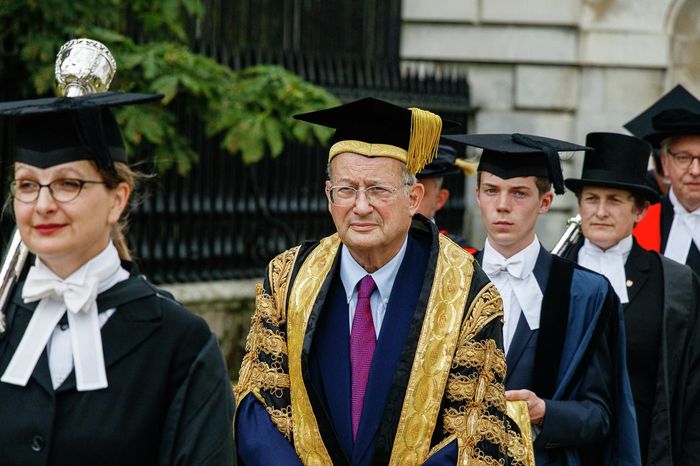First candidate to announce chancellorship bid pledges to tackle bullying
Wyn Evans says the University is facing an ‘internal crisis’ of bullying

A Cambridge astrophysicist has announced his bid to become the University’s next Chancellor, claiming he will tackle a culture of bullying in the institution.
Wyn Evans, a Professor of Astrophysics at the Institute of Astronomy, has declared that he is “standing on a twofold platform” in his chancellorship bid. This includes “a thorough review of current job creation and retention trends against the background of the University’s mission statement” and a “review of transparency, accountability, accessibility and performance within the management of the University”.
Evans, who leads the 21 Group—a platform which was created “to provide a network and support group for staff experiencing bullying, harassment and discrimination in their academic careers”—launched his candidacy in the wake of a recent survey which found that just 27% of staff at the University of Cambridge were happy with attempts to address bullying and harassment in the institution.
The same survey found that 52% of staff felt their department had supported their mental health and wellbeing. However, survey only had a response rate of 23%, with some departments having a response rate of lower than 5%.
Evans told The Observer: “This survey reveals a grim culture of bullying and harassment, yet the most shocking thing of all is that the University found this out a year ago and hasn’t taken any action.”
He added: “If a senior academic is valuable to the University because they hold a lot of research grants bringing in a lot of money, Cambridge won’t touch them,” claiming: “If there is a grievance, it will be discarded.”
Dissatisfaction regarding the handling of bullying complaints was particularly high in a number of scientific departments. In the Medical Research Council toxicology unit, 69% of staff who responded to the survey disagreed or strongly disagreed that they were happy with how bullying and harassment was addressed. This figure was 61% in the department of pathology, 58% in the Cavendish laboratory of physics, and 50% at both the Cancer Research UK (CRUK) Cambridge Institute and the department of oncology.
This figure was also approximately 50% in the earth sciences, history, and astronomy departments.
A spokesperson for the University of Cambridge said: “We take concerns about bullying seriously, and we strongly encourage anyone who experiences such behaviour to report it. The university strives to provide an inclusive and supportive working environment where all staff feel valued. We are supporting Departments to take action, where issues have been identified, and have recently refreshed our Dignity at Work and Grievance policies and introduced a new code of behaviour. Although the low response rate of 23% limits the breadth of feedback, we aim to increase participation in future surveys to ensure a more comprehensive understanding of staff experiences.”
The University also introduced a new HR code in 2023 in order to tackle these issues. This included provisions against "belittling" co-workers, using "inappropriate language," and behaving on a "controlling or coercive way". The code was adopted following discussions with department members, SU representatives, and members of the University and College Union.
One cancer researcher who recently left the University told The Observer that they had been “intimidated, harassed, and bullied” by a senior academic at CRUK Cambridge Institute. They added: “Research was my whole life. I really looked forward to coming into the department, exchanging ideas and inspiring research students. I was left despairing and had many months of demoralisation.” They said that the “ordeal” had “ruined” their personal life.
Evans believes that the University is facing an “internal crisis” of bullying, and now requires a chancellor who would advocate for “sweeping reforms”.
Evans, like all candidates, will require at least 50 nominations by Friday 2 May to stand.










